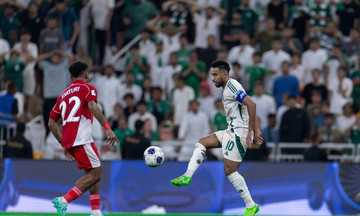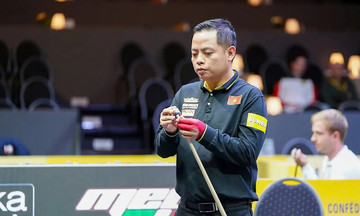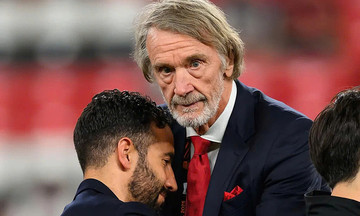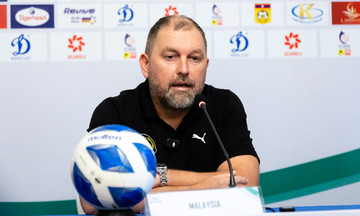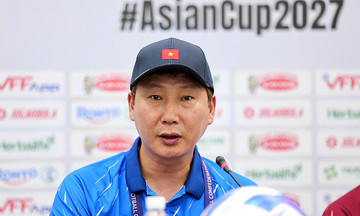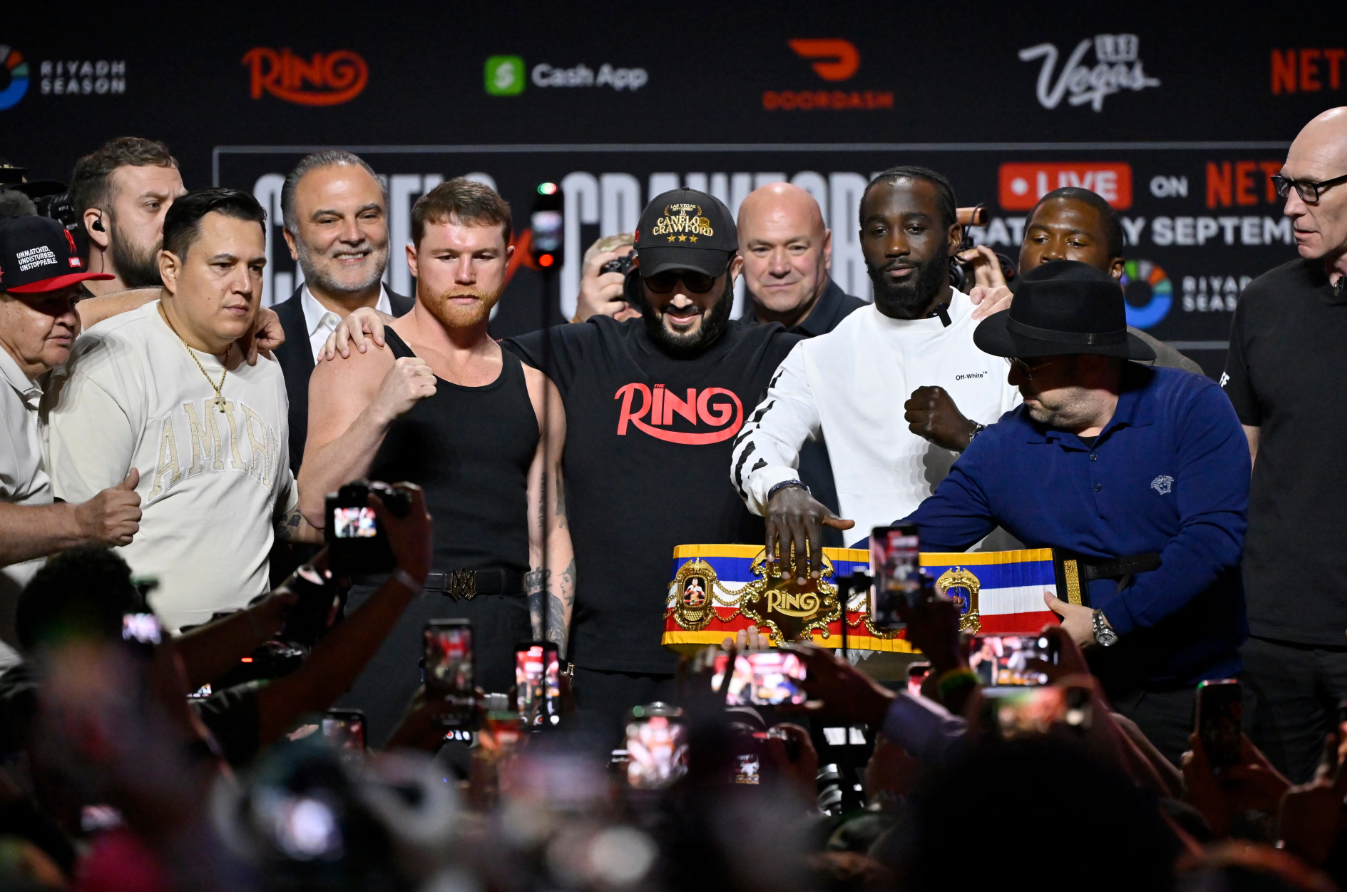 |
Eddy Reynoso, Canelo Alvarez, Turki al-Sheikh, Dana White and Terence Crawford (from left to right) at the pre-fight press conference for Canelo vs. Crawford in Las Vegas, USA, 13/9/2025. Photo: *Netflix* |
On 13/9, at Allegiant Stadium in Las Vegas, Crawford defeated Canelo to become the first male boxer in the four-belt era to hold the undisputed championship in three different weight classes. Dubbed the "fight of the century," the match drew 41 million viewers globally on Netflix and generated over 100 million USD in revenue.
For Crawford, it was his 42nd consecutive victory, solidifying his position as the world's top boxer. But for Saudi Arabia, it was the beginning of a larger plan: to use these "super fights" as a springboard for a global boxing empire.
Shortly after the fight, the Chairman of the Saudi General Entertainment Authority, Turki al-Sheikh, announced Zuffa Boxing, a joint venture with TKO Group (the parent company of UFC and WWE). Dana White, President of UFC, will lead the operation.
Zuffa Boxing plans to hold about 12 events per year, building a closed league system with 12 weight classes and over 200 contracted fighters. Each weight class will have only one championship belt, eliminating the "belt chaos" that has diluted boxing's appeal.
White stated, "Like the UFC, the best fighters will be forced to face each other. There will be no more avoiding fights or divisions caused by multiple organizations. Fans will regularly see the best fights," he said.
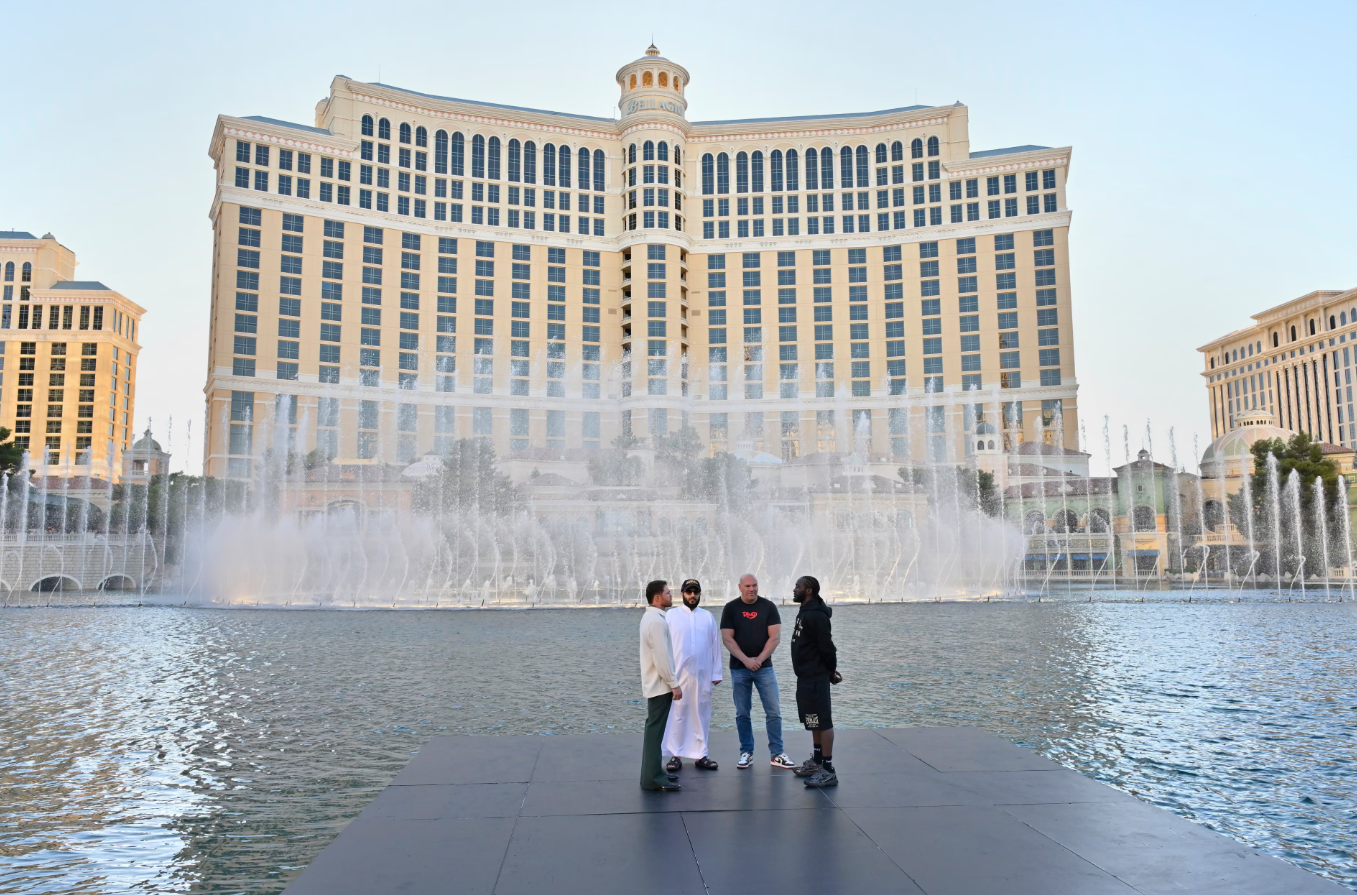 |
Canelo Alvarez, Turki al-Sheikh, Dana White, and Terence Crawford (from left to right) at a photo shoot at the Bellagio, Las Vegas, USA, 8/9. Photo: *Netflix* |
In addition to regular events, Zuffa Boxing will continue to stage a few "super fights" each year, similar to Canelo-Crawford, to attract a wider audience and generate commercial momentum.
For nearly a decade, Saudi Arabia has spent tens of billions of USD using sports as a tool for national promotion: from golf (LIV Golf), F1 to the 2034 FIFA World Cup. In boxing, Riyadh has hosted several high-profile matches like Anthony Joshua vs. Andy Ruiz Jr., Oleksandr Usyk vs. Joshua, and Tyson Fury vs. Deontay Wilder.
In 11/2024, Turki al-Sheikh acquired *The Ring* magazine, the world's oldest boxing publication, effectively controlling the sport's most prestigious belt system and rankings. At that point, Saudi Arabia became not just a promoter but also the arbiter of who is considered number one.
Zuffa Boxing, with substantial backing from Riyadh, is the latest element in this strategy: not just organizing events, but also shaping the structure of global boxing.
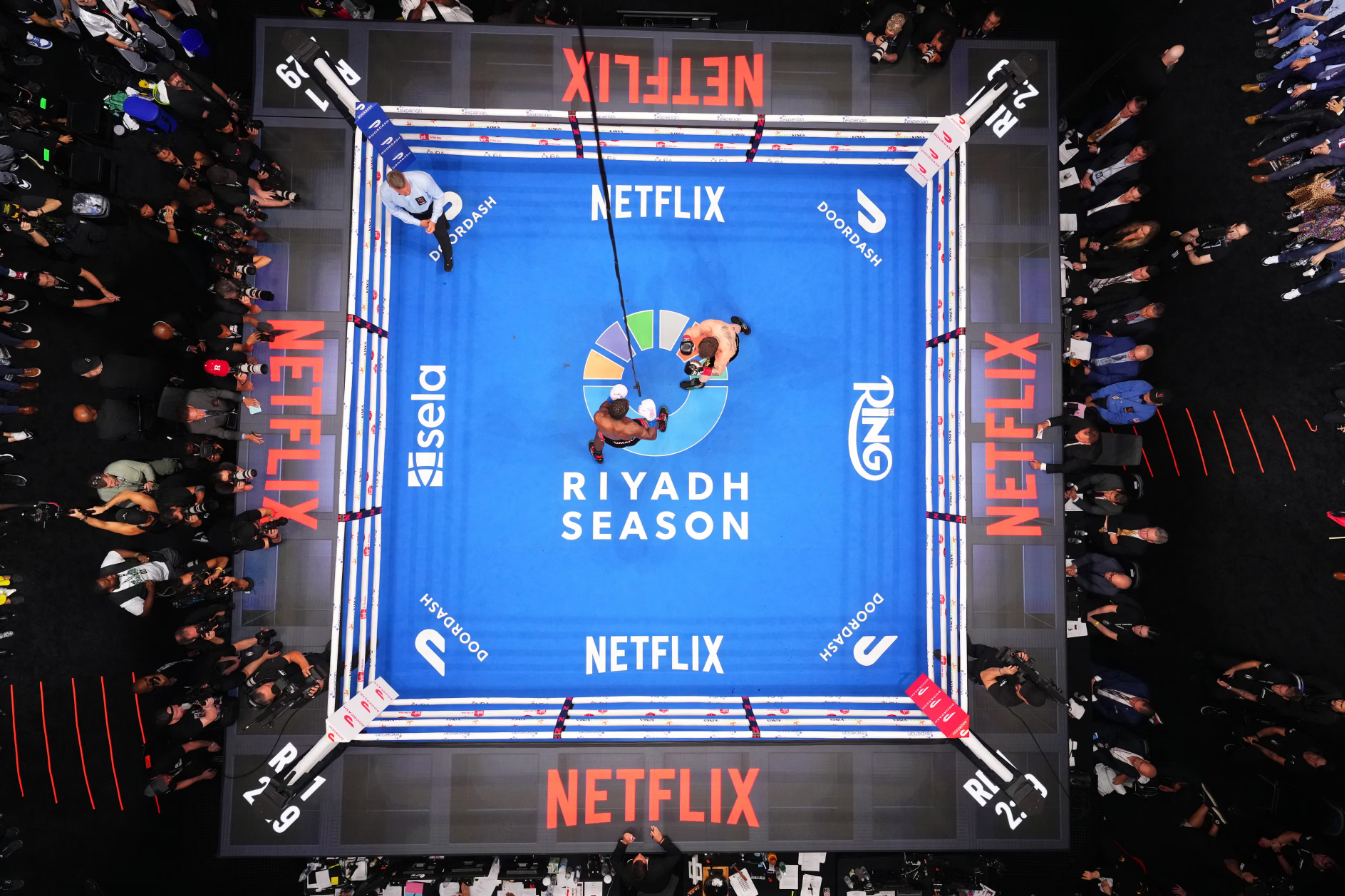 |
An aerial view of the Canelo Alvarez vs. Terence Crawford fight. Photo: *TKO Worldwide LLC* |
This ambition immediately faced criticism. Many of Zuffa's contracts are considered unfavorable to fighters: long-term commitments, significantly lower pay than traditional boxing, and complete control of commercial and media rights belonging to the company.
Some clauses even violate the Muhammad Ali Boxing Reform Act, a US law enacted in 2000 to protect fighters from promoter exploitation. TKO and Zuffa are lobbying the US Congress to amend the law, paving the way for this model.
Opponents warn that if the law is relaxed, Zuffa will simultaneously be the organizer, manager, and ranking body, concentrating all power in one entity - an unprecedented situation in boxing history.
The UFC model has proven commercially successful, but it has been accompanied by ongoing controversy over low fighter pay and lack of freedom to choose fights. Many MMA fighters have publicly criticized Dana White for this.
Now, with Zuffa Boxing, a similar risk emerges. Boxing is known for its superstars who can negotiate their own deals and receive a large share of pay-per-view (PPV) revenue. If they switch to a closed model, they will lose this financial advantage, becoming "employees" within the TKO and Saudi system.
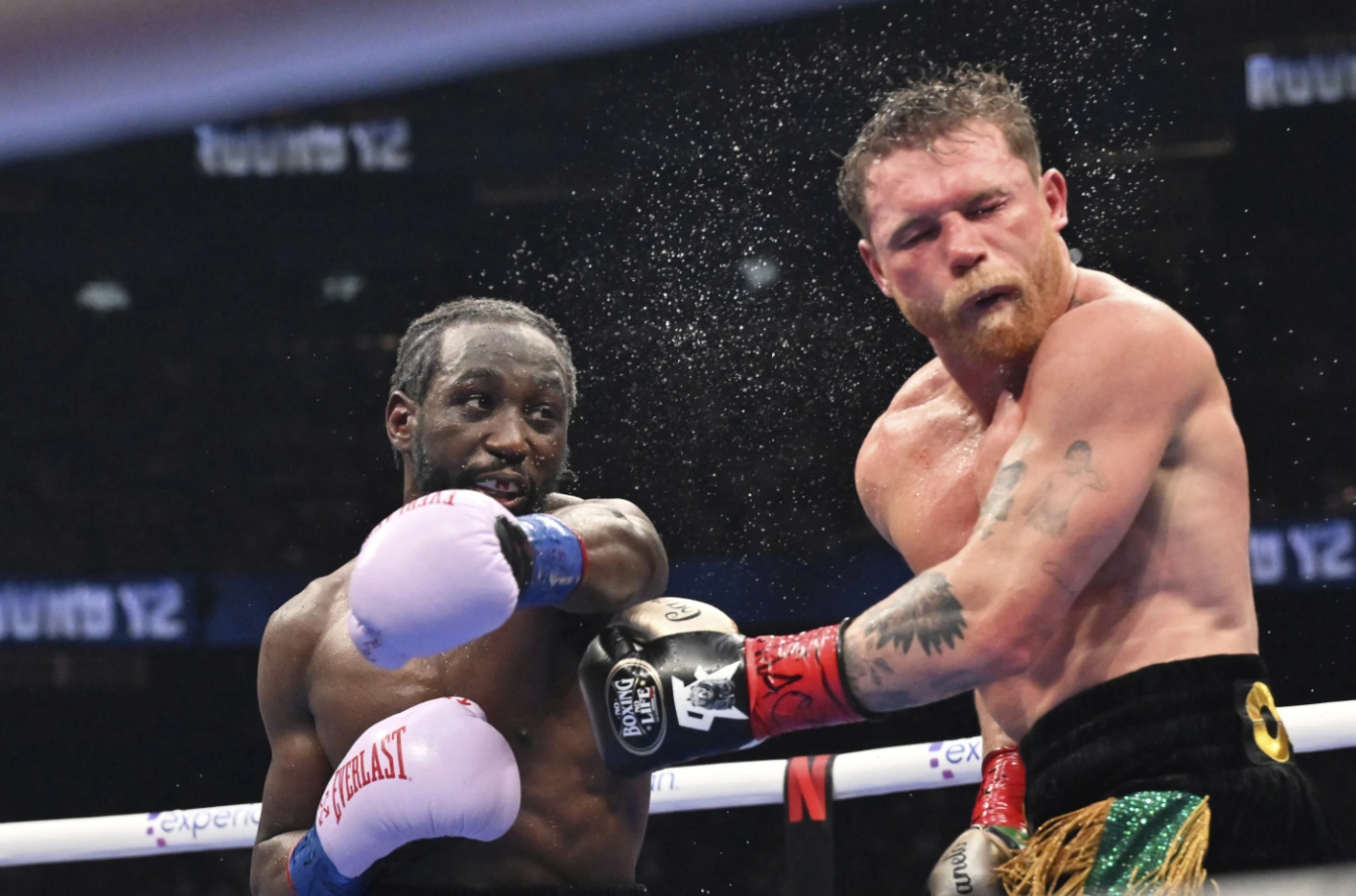 |
Terence Crawford (left) lands a punch on Canelo Alvarez during their super middleweight unification bout at Allegiant Stadium, Las Vegas, USA, 13/9/2025. Photo: *AP* |
Beyond contract issues, there are doubts about financial transparency. According to *The Athletic*, many partners and suppliers have not received full payment after events in Riyadh. Some even flew to Las Vegas during the Canelo-Crawford week to demand payment but left empty-handed.
The funding from Saudi Arabia is substantial, but it has often been accused of lacking sustainability, focusing more on image promotion than long-term system building.
Despite the controversy, Zuffa Boxing and Saudi Arabia have taken center stage in the world of boxing. Top fighters find it hard to ignore the enormous sums offered by Riyadh, while audiences are drawn to the heavily publicized super fights.
The question is whether this "closed league" model will bring fairness and decent earnings for fighters, or simply turn them into pawns in the power play of global entertainment moguls.
After defeating Canelo, Terence became a symbol of a transitional moment: a legend asserting his individual status, but also inadvertently opening the door to an era where boxing may no longer belong to the fighters, but entirely to corporations and state investors.
Hong Duy compiled




